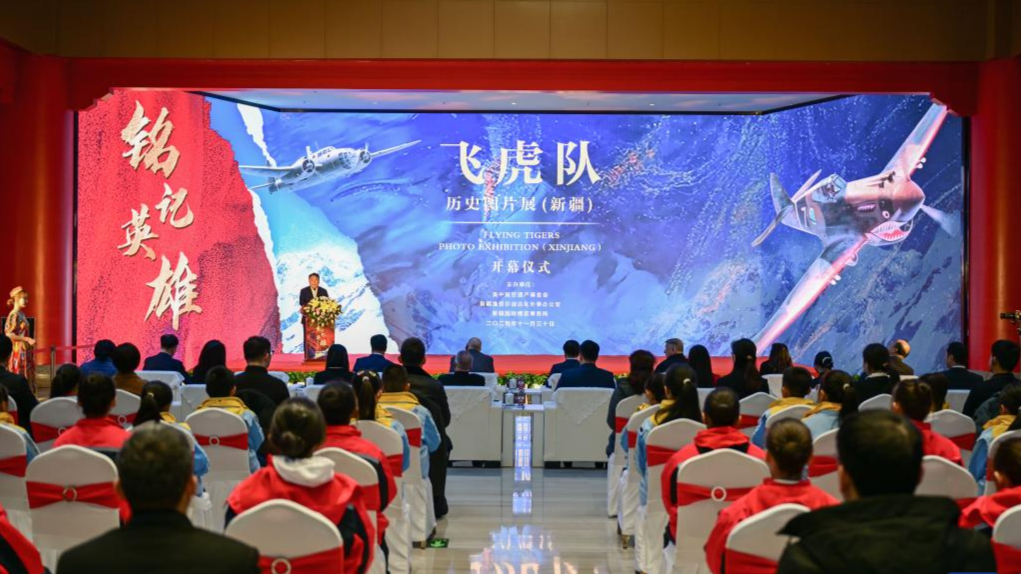
URUMQI - A photo exhibition dedicated to the Flying Tigers kicked off this weekend in Urumqi, capital of Northwest China's Xinjiang Uygur autonomous region.
Co-sponsored by the Sino-American Aviation Heritage Foundation and Xinjiang's government departments, the exhibition features 312 rare photographs and six artifacts, highlighting the enduring friendship between Chinese and American people.
"We have scheduled the tour in 14 cities and Urumqi is our fourth stop," said Jeffrey Greene, chairman of the Sino-American Aviation Heritage Foundation. He expressed hope that the exhibition tour would help more people know about the history of the close cooperation between China and the United States in the fight against Japanese invaders during World War II.
READ MORE: Spirit of Flying Tigers essential for sound China-US relations
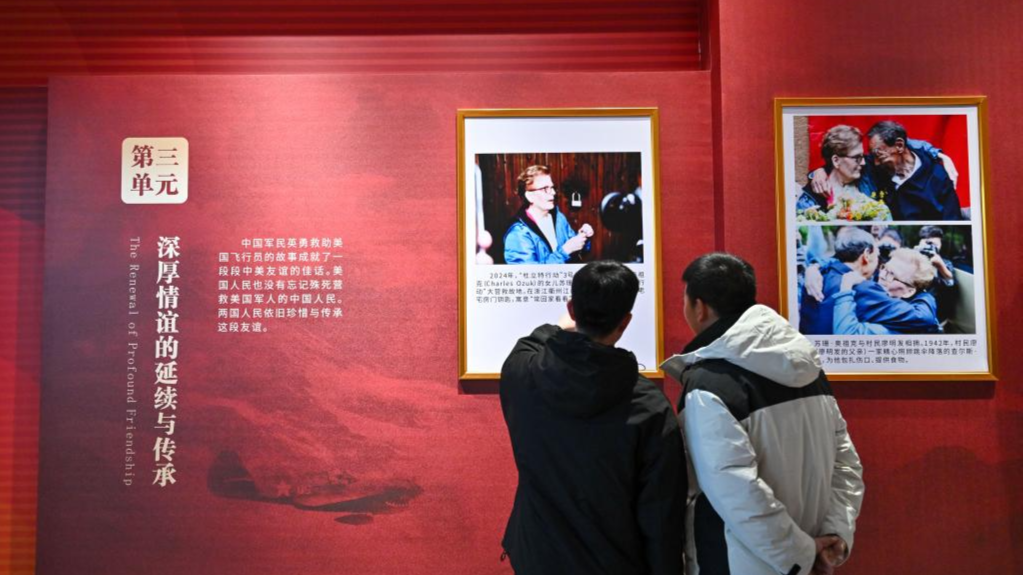
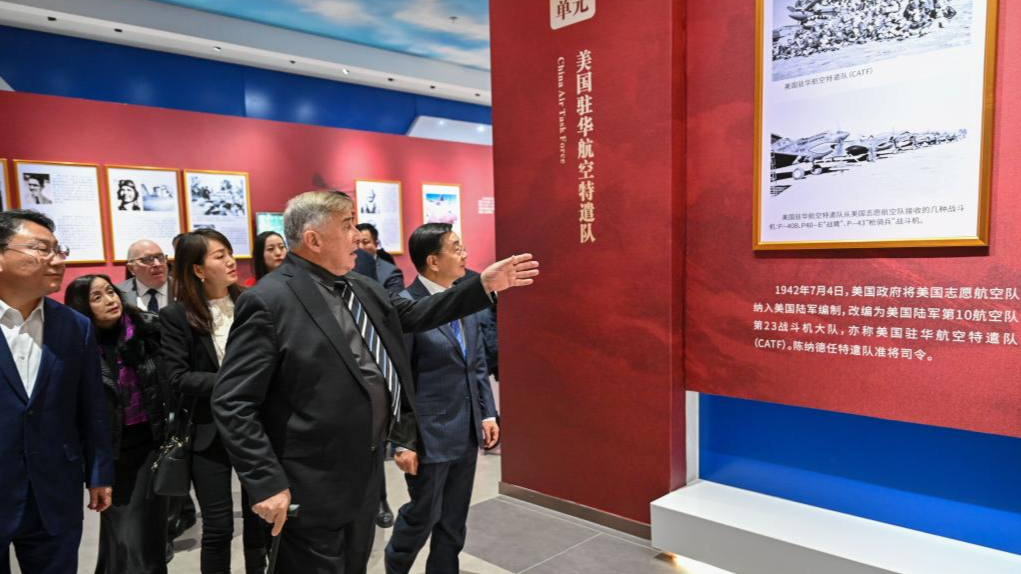
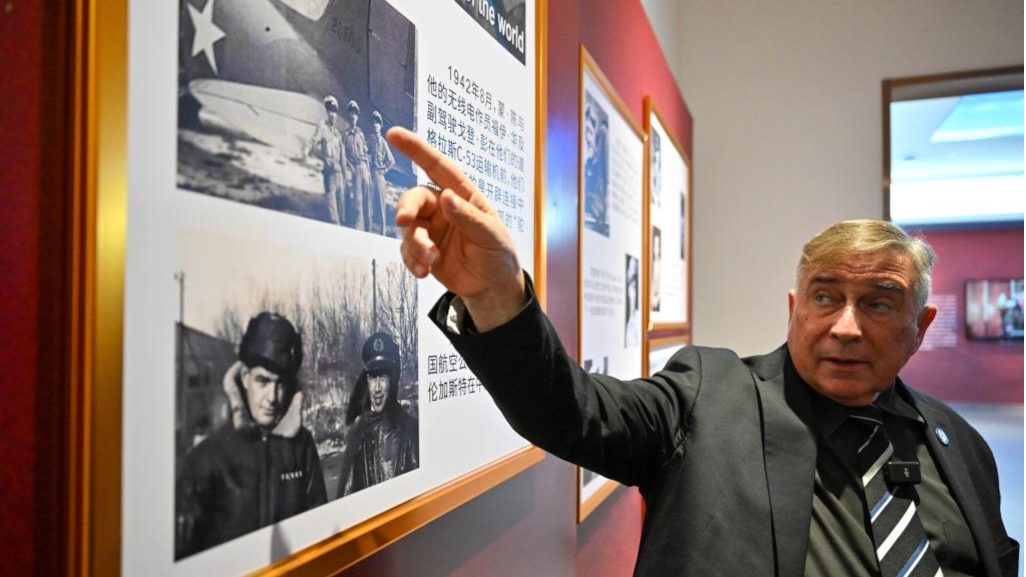
The Flying Tigers, officially known as the American Volunteer Group of the Chinese Air Force, was formed in 1941 by US General Claire Lee Chennault. They came to China to help Chinese people fight the invading Japanese troops.
While the Flying Tigers did not directly engage in enemy forces in Xinjiang, they share a lesser-known connection to the autonomous region.
Greene recounted attempts to establish alternative flight routes over the Himalayas, known as the Hump route, to circumvent Japan's blockade of strategic materials in 1942. "Meng Chin, one of my friends, managed to fly over the towering Kunlun and Tianshan mountain ranges, reaching an airstrip near Urumqi from Karachi in Pakistan," he said.
On his first visit to Xinjiang, Greene expressed his excitement at seeing the majestic Tianshan Mountains, sampling local cuisine, and experiencing the warm hospitality of people from various ethnic groups in the autonomous region.
Clifford Long Jr, vice-chairman of the foundation as well as the son of a Flying Tigers pilot, said that it's always emotional to talk about that history. "My father was in China for just a short period, but it's one of the most memorable times of his life," he added.
He said he had brought his father to China in 1994 and 2004, and that his father was thrilled by the remarkable progress made by the Chinese people.
READ MORE: Historic Flying Tigers relics find new home in Guangzhou
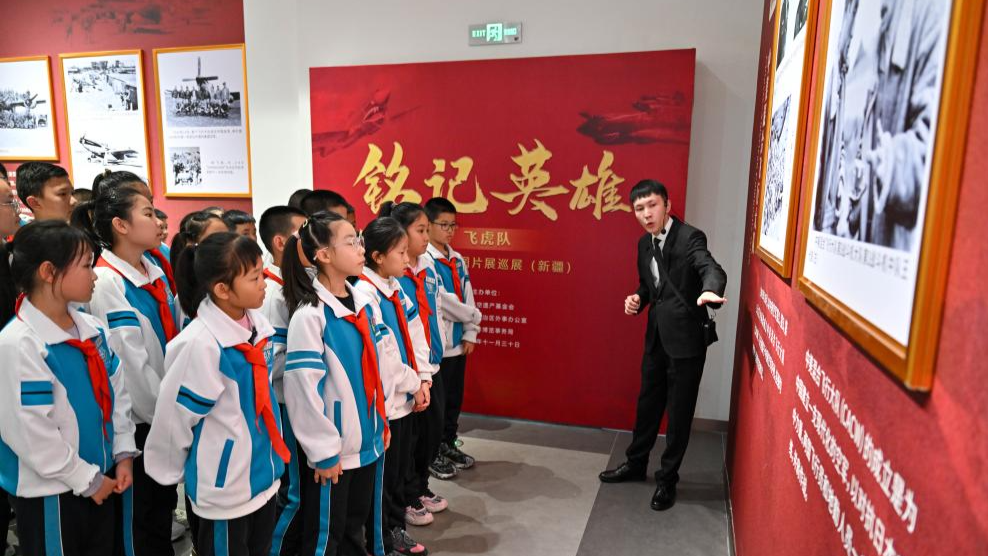

On Sunday, the foundation established partnerships with seven schools across Xinjiang. "We hope through activities online and offline, we can enhance mutual understanding and friendship between young people in the two countries," Greene said.
The foundation initiated the Flying Tigers Friendship School and Young Leaders Program in 2022 to promote the spirit of the Flying Tigers among Chinese and American students and deepen mutual respect and cooperation. To date, the program has partnered with nearly 60 schools across China.
Noting that the relationship between the United States and China is the "most important relationship on the planet" and a "guidepost and touchstone to the future," Greene said, "There's nothing Americans and the Chinese can't do together and that's what we're teaching our kids."


